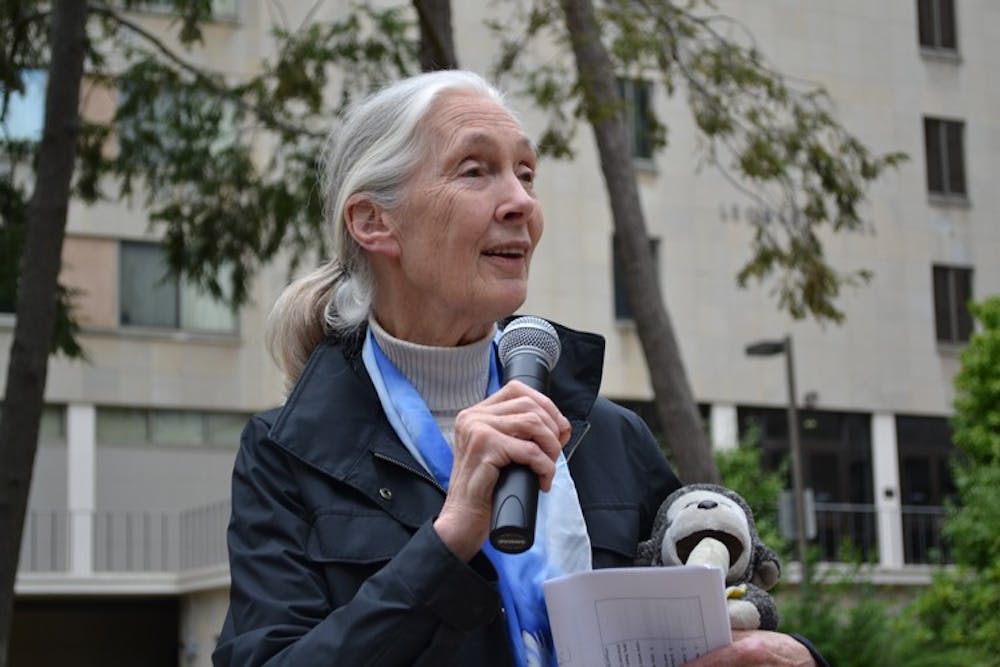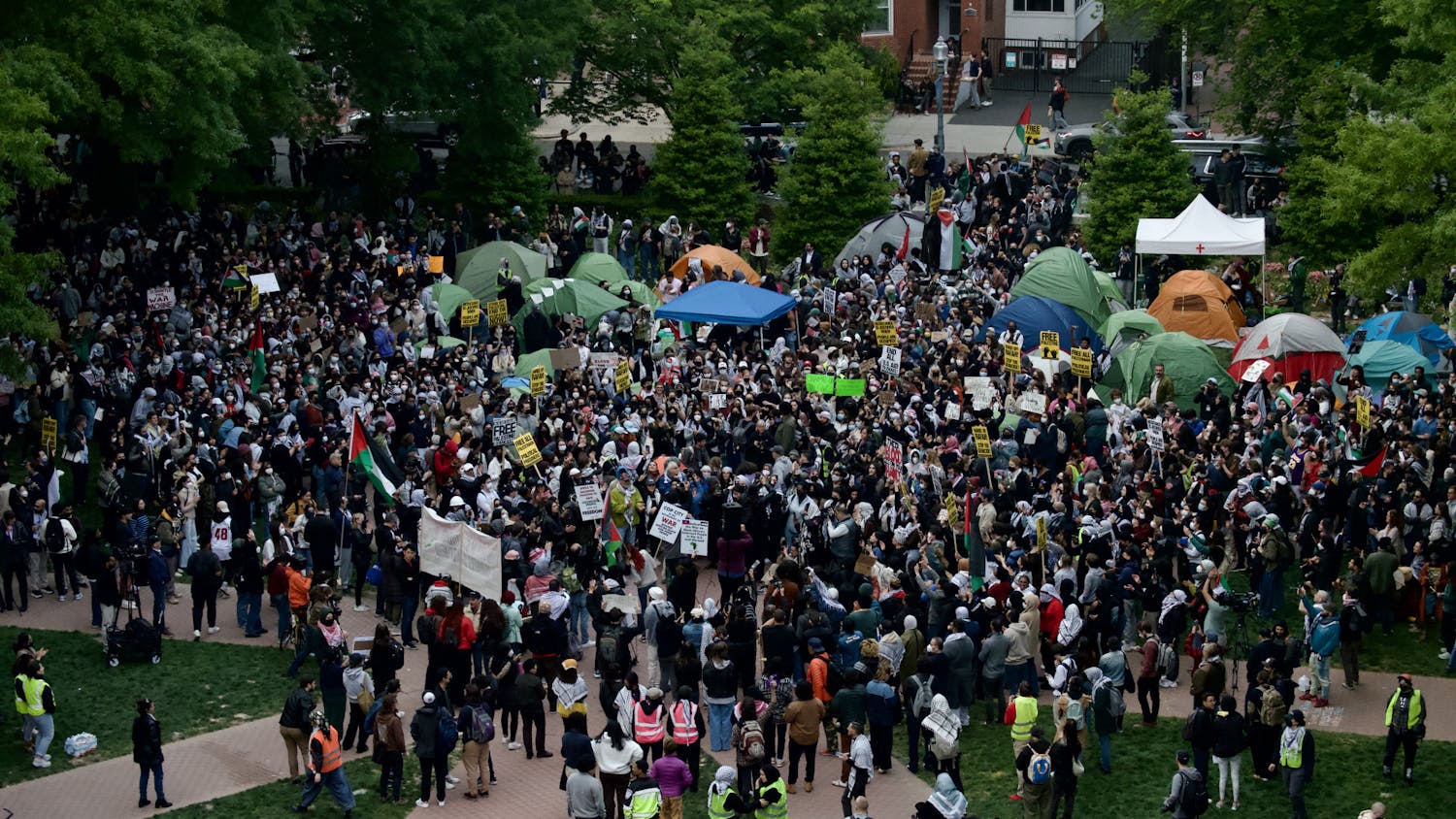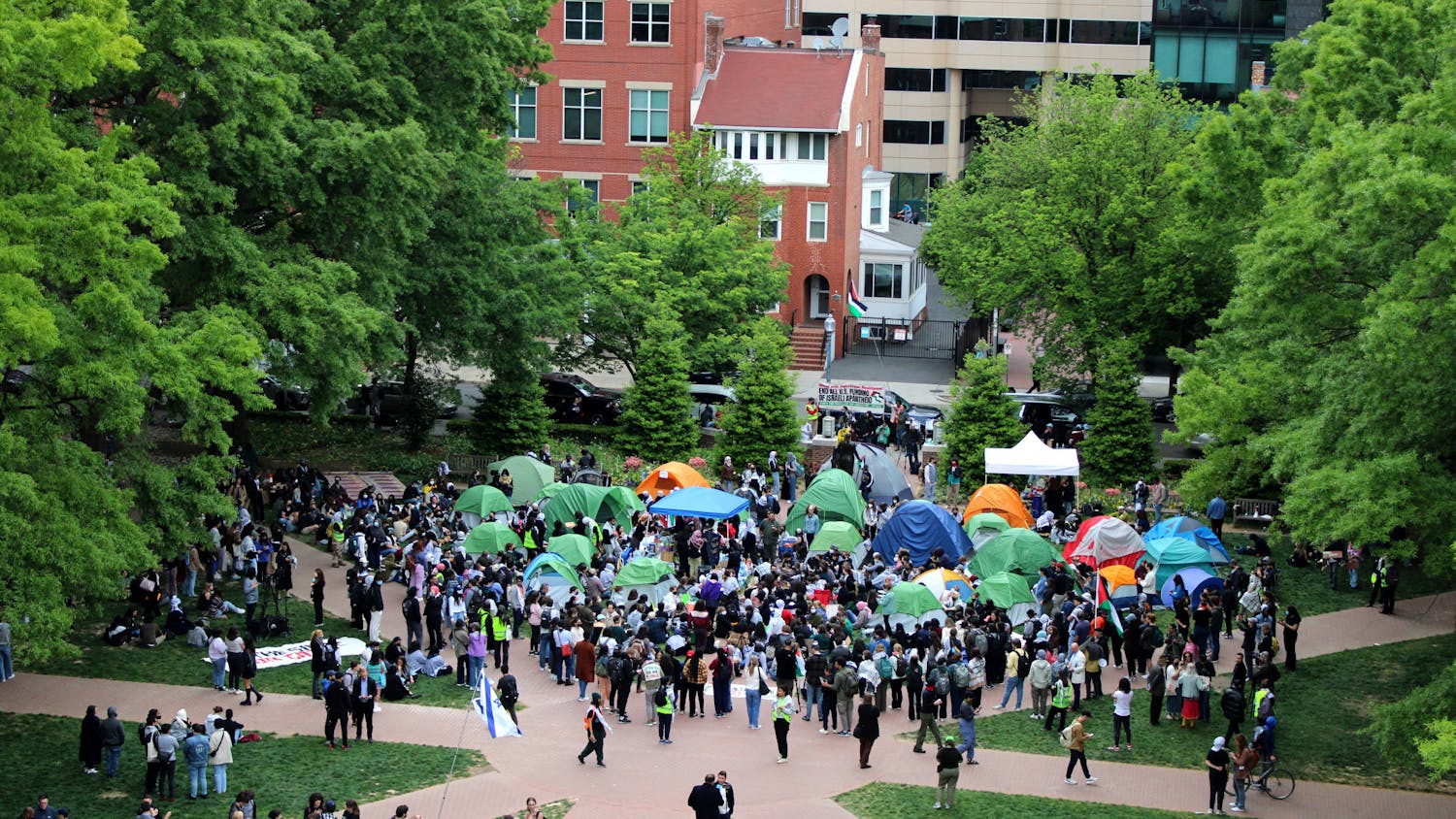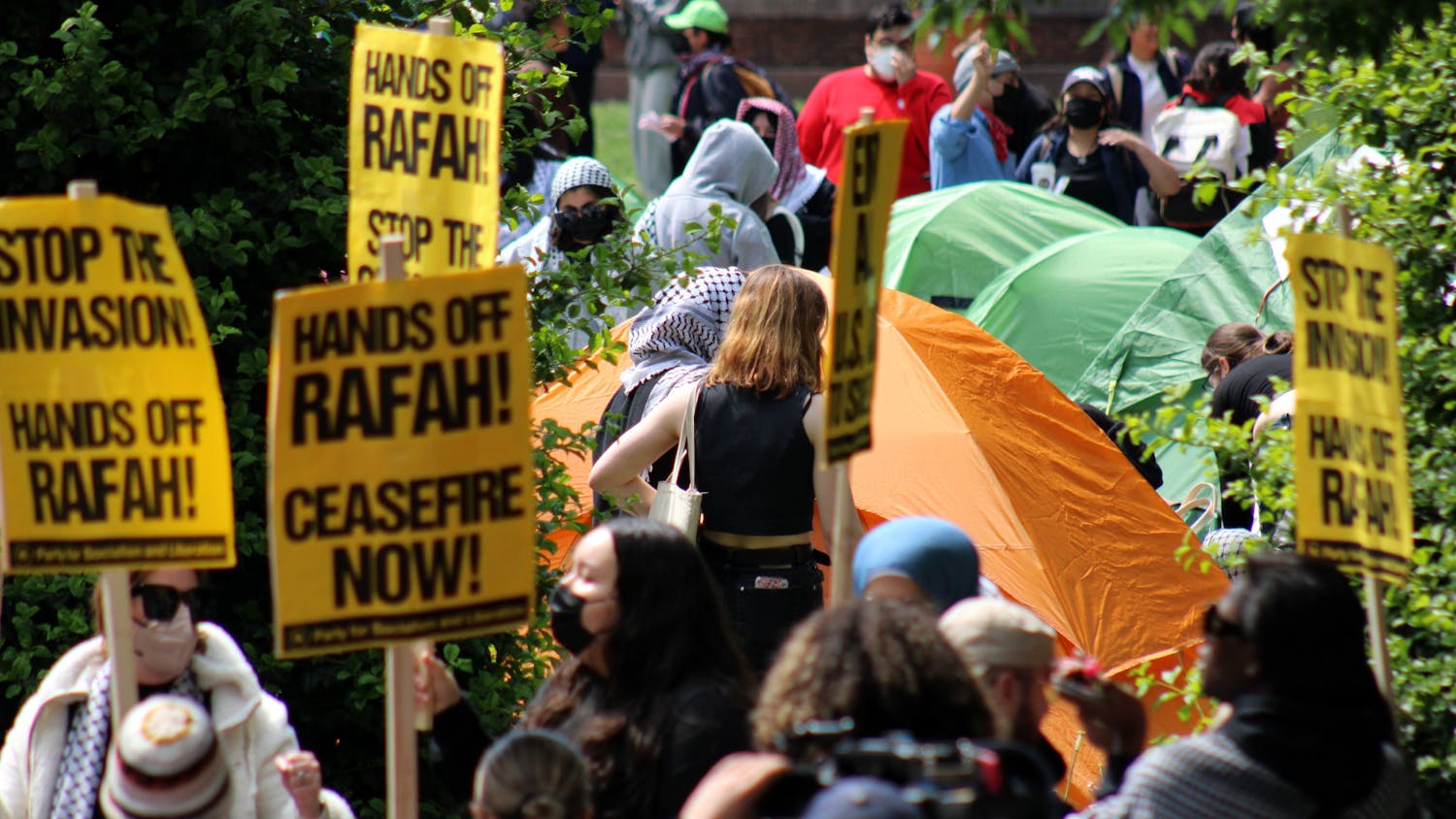Dr. Jane Goodall, the British scientist who made breakthroughs in chimpanzee research while living in Tanzania, advocated on behalf of her Roots and Shoots program at AU Sept. 18 in the Woods-Brown Amphitheater.
The organization is a global youth advocacy group aimed at spreading peace. Roots and Shoots operates peace building programs in 126 countries and works with elementary schools, prisons and universities.
Goodall left Africa after 45 years of research to travel around the world and speak about animals and the environment.
Goodall, 77, spends over 300 days a year traveling – and she stops at many universities.
She answered questions from students and NBC4 news anchor Wendy Rieger about her life, her work with chimpanzees and Roots and Shoots.
Goodall said her fascination with Africa began after she read “Tarzan” as a little girl. She eventually saved up enough money working as a waitress to pay for the boat fare to Africa.
Goodall then moved to Gombe National Park, Tanzania, at age 23 with the help of Louis Leakey, a research scientist who sponsored her work.
After a year of research in the field, she gained enough trust among the chimpanzees to be able to approach them. Eventually, she was accepted into their society and lived with them.
When chimpanzees became an endangered species, Goodall left the forest to try to protect them from going extinct, she said.
During her time in Gombe, Goodall learned that chimpanzees, like humans, occasionally have wars with one another.
Goodall commented her research has affected her thoughts on peace. She said chimpanzees are not the best teachers because they are just like us. Instead, she noticed unhappiness and tension among the chimpanzees in times of conflict, both of which disappeared in times of peace.
“If there’s been a conflict, as particularly obvious in captive chimps who can’t get away, then nobody relaxes until the conflict is resolved,” she said.
Goodall also hopes helping other people would ultimately help the chimpanzees.
One cause of the endangered status of chimps is deforestation which she attributes to poverty. As families cut down trees to feed their families, they inevitably deplete resources that lead to systemic poverty.
“[Saving] the chimpanzees and the forests wouldn’t work unless [we work with] local people living in poverty, improving their lives and basically creating groups of people who become our partners in conservation rather than fighting for the last bits of forest,” she said.
Goodall also told a story about a group of African children that started planting seeds during a war. A group of soldiers around the children stopped their observing, leaned their guns against nearby trees and started helping the children plant seeds, Goodall said.
And that’s the kind of movement she hopes AU students will join.
“This, to me, is so Roots and Shoots, it’s so beautiful,” she said.
When asked whether she misses living in the forest, Goodall closed her eyes.
“Luckily, I can close my eyes and actually be in the forest,” she said. “Otherwise I would probably go crazy.”
nglass@theeagleonline.com





